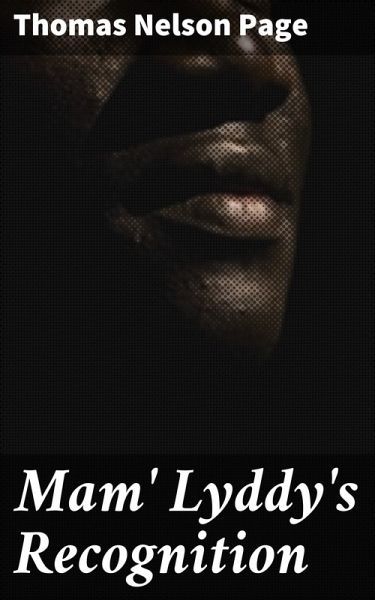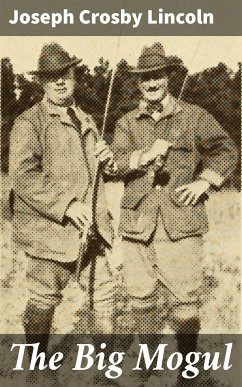
Mam' Lyddy's Recognition (eBook, ePUB)
1908
Versandkostenfrei!
Sofort per Download lieferbar
0,49 €
inkl. MwSt.
Weitere Ausgaben:

PAYBACK Punkte
0 °P sammeln!
In "Mam' Lyddy's Recognition," Thomas Nelson Page intricately weaves a narrative that explores the complexities of race and identity in the post-Civil War South. Through richly drawn characters and poignant dialogue, Page captures the nuances of Southern life, employing a literary style that blends realism with elements of regionalism. The novella's setting in Virginia serves as a microcosm of the broader societal changes underway, highlighting themes of recognition, redemption, and the struggle against entrenched social norms. Page's keen observation of Southern dialects and customs lends aut...
In "Mam' Lyddy's Recognition," Thomas Nelson Page intricately weaves a narrative that explores the complexities of race and identity in the post-Civil War South. Through richly drawn characters and poignant dialogue, Page captures the nuances of Southern life, employing a literary style that blends realism with elements of regionalism. The novella's setting in Virginia serves as a microcosm of the broader societal changes underway, highlighting themes of recognition, redemption, and the struggle against entrenched social norms. Page's keen observation of Southern dialects and customs lends authenticity to his portrayal of the African American experience during Reconstruction, making the work a significant contribution to Southern literature of his time. Page, a prominent Southern author and an advocate for reconciliation following the Civil War, was deeply influenced by his own experiences and the sociocultural landscape of his native Virginia. His writing often reflects the tension between nostalgia for the Old South and the harsh realities in the lives of its inhabitants. This background provided Page with a unique perspective that informs his exploration of racial dynamics in "Mam' Lyddy's Recognition," engaging readers in profound conversations about heritage, memory, and social justice. I highly recommend "Mam' Lyddy's Recognition" to readers interested in Southern literature, race relations, and historical narratives that challenge preconceived notions of identity. Page's nuanced and empathetic portrayal of his characters allows for a reflective reading experience, encouraging dialogue around the moral implications of recognition and understanding in a divided society. This work remains an essential text for those seeking to grasp the complexities of the Southern experience.
Dieser Download kann aus rechtlichen Gründen nur mit Rechnungsadresse in A, B, BG, CY, CZ, D, DK, EW, E, FIN, F, GR, H, IRL, I, LT, L, LR, M, NL, PL, P, R, S, SLO, SK ausgeliefert werden.













